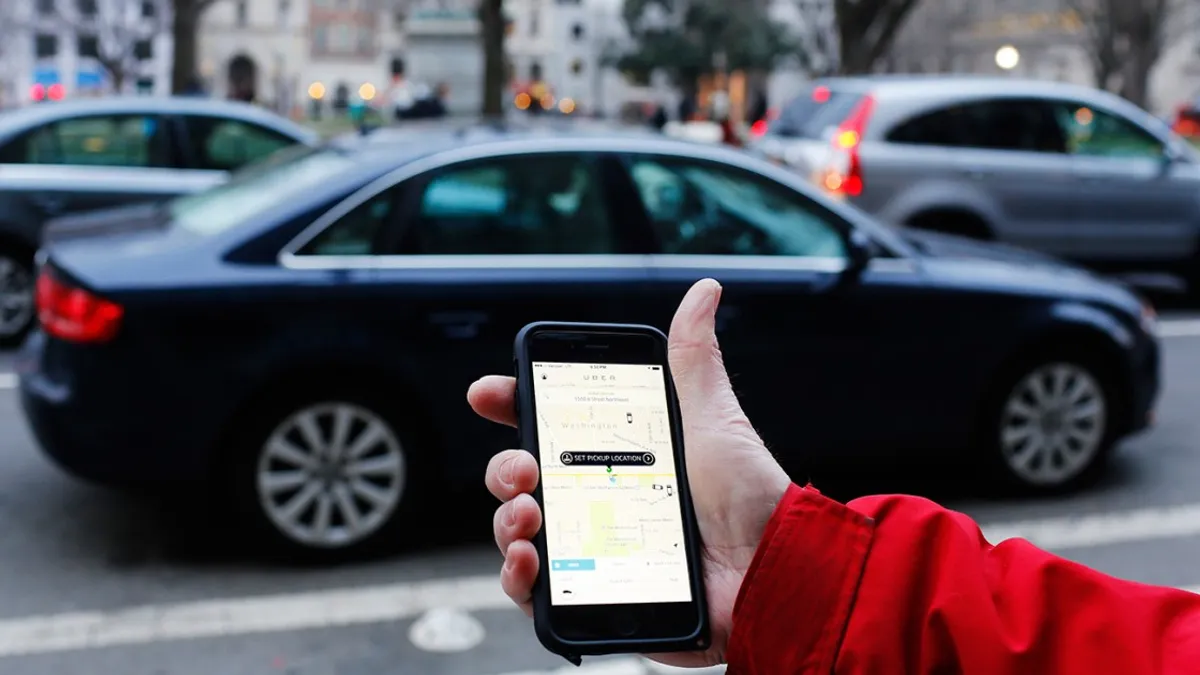Dive Brief:
- Uber announced a new long-term partnership with the City of Cincinnati, dubbed the Cincinnati Mobility Lab, to study the impacts of shared mobility on public transit and make the city a "center of innovation."
- The multi-year commitment will include: addressing the growing demand for curb space; rolling out Uber Movement to leverage city data for research and analysis; launching a first-of-its-kind study with local transit agencies SORTA and TANK to develop a service strategy; creating an employer forum with the Cincinnati USA Regional Chamber; hosting a Cincinnati Mobility Summit; and launching Meals on Wheels in the city.
- Uber hopes the partnership will become a model for other cities, and is encouraging city leaders to get in touch with the company if they're interested in collaborating.
Dive Insight:
This partnership is a "groundbreaking" development for Cincinnati, according to SORTA CEO Dwight Ferrell, who explained to Cincinnati.com that Uber data, including where the service picks riders up or drops them off, is currently a "missing data set" for the city. In fact, it's a missing data set for most cities, as Uber is highly protective of its data for reasons of competition and privacy, according to The Washington Post. Andrew Salzberg, Uber's head of transportation policy and research, told the Post that the company is "sympathetic" to cities' desire to know Uber data, and if this partnership in Cincinnati is successful, the company may increase its data sharing across the board.
Uber has been available in Cincinnati since 2014 and its ridership has increased to 200,000 users in the region. The service likely selected Cincinnati as a testbed for its mobility lab initiative due to its popularity in the area, as well as the potential to improve existing transportation options. Cincinnati recently lost a bid to host Amazon's HQ2, which may have been a result of the city's faulty public transportation access — which real estate research firm Reis cited as the city's worst attribute.
Public-private partnerships (P3) are becoming a more common way to accelerate the growth of integrated transportation systems, and this P3 is no different. Outside of data sharing, Uber's efforts to design the "curb of the future" and increase employment opportunities in the region will be important initiatives to share nationwide. Uber wrote in a blog post, "technology on its own is not a solution for urban problems—but done right, and in partnership with others, we believe shared mobility has the potential to contribute to a better world for all."












